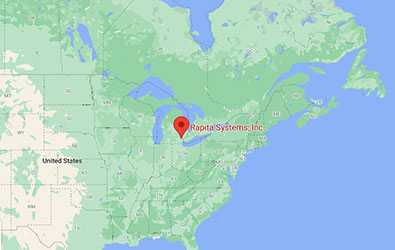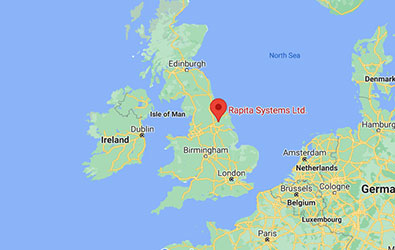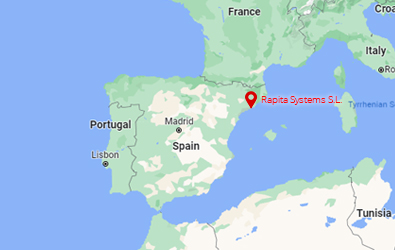This month, Rapita Systems were very pleased to welcome Dr. Francisco J. Cazorla, Computer Architecture Operating Systems (CAOS) Group Manager at the Barcelona Supercomputing Center (BSC).
We've enjoyed a very productive partnership with the BSC since 2005 and Francisco's visit was the latest in a series of visits over the years.
Francisco visited to discuss the RapiDaemons product that forms part of Rapita Systems' Multicore Timing Analysis Solution. The BSC's microbenchmark (MuBT) technology is the primary technology on which RapiDaemons are based.
RapiDaemons is a collection of specialized programs designed to generate contention from specific resources such as buses, caches and GPUs to support analyzing the timing behavior of multicore systems. Each microbenchmark is designed to either maximize or match a desired level of contention for a specific resource. As such, RapiDaemons can be used to characterize hardware by investigating how different operations are affected by different types and levels of contention, and quantify the impact of this contention (known as interference channels in CAST-32A).
"Rapita is the main partner in the work the CAOS group are doing on real-time systems. We've been working together since 2005, when we worked on the MERASA FP7 EU project together. Since then, we have collaborated in several EU-funded and ESA-funded projects.
As a result of the joint work made by BSC and Rapita as part of the PROXIMA project, we both entered into a partnership to provide consultancy services examining the timing behavior of multicore systems. This is a very exciting topic around which we have had many very interesting discussions."
If you have a multicore project you need to certify, you can find out more about our Multicore Timing Analysis Solution here.

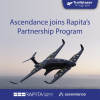 Hybrid electric pioneers, Ascendance, join Rapita Systems Trailblazer Partnership Program
Hybrid electric pioneers, Ascendance, join Rapita Systems Trailblazer Partnership Program
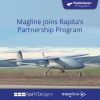 Magline joins Rapita Trailblazer Partnership Program to support DO-178 Certification
Magline joins Rapita Trailblazer Partnership Program to support DO-178 Certification
 Eve Air Mobility joins Rapita Systems Trailblazer Partnership Program for eVTOL projects
Eve Air Mobility joins Rapita Systems Trailblazer Partnership Program for eVTOL projects
 How to certify multicore processors - what is everyone asking?
How to certify multicore processors - what is everyone asking?
 Data Coupling Basics in DO-178C
Data Coupling Basics in DO-178C
 Control Coupling Basics in DO-178C
Control Coupling Basics in DO-178C
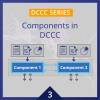 Components in Data Coupling and Control Coupling
Components in Data Coupling and Control Coupling
 DO-278A Guidance: Introduction to RTCA DO-278 approval
DO-278A Guidance: Introduction to RTCA DO-278 approval
 ISO 26262
ISO 26262
 Data Coupling & Control Coupling
Data Coupling & Control Coupling
 Verifying additional code for DO-178C
Verifying additional code for DO-178C
 DO-178C Multicore In-person Training (Bristol)
DO-178C Multicore In-person Training (Bristol)
 DO-178C Multicore In-person Training (Fort Worth, TX)
DO-178C Multicore In-person Training (Fort Worth, TX)
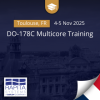 DO-178C Multicore In-person Training (Toulouse)
DO-178C Multicore In-person Training (Toulouse)










